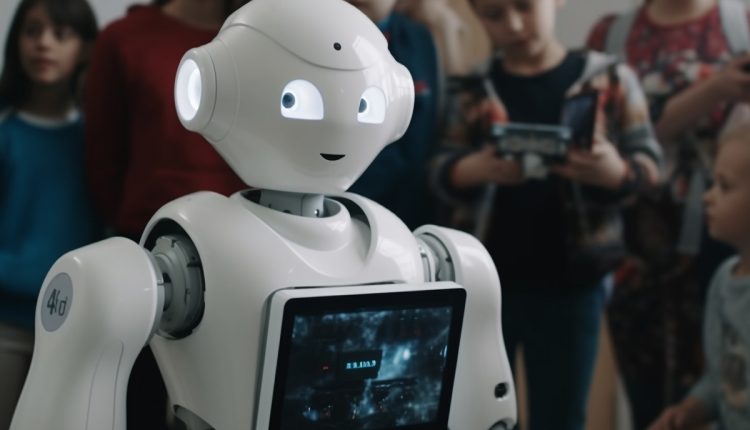AI’s rapid advancement is expected to replace millions of jobs globally in the next five years and drive the skill acquisition velocity to unprecedented levels. Asteri’s CEO, Julia Grace Samoylenko, emphasizes the need for balanced AI integration and upskilling and reskilling to navigate these changes successfully. She advocates for the ethical deployment of this revolution and highlights that it begins with the fundamental problem of understanding and actively measuring workforce skills, which is still addressed using antiquated approaches.
According to the National Fund for Workforce Solutions, AI is set to replace 75 million jobs globally by 2025. (1) Due to this phenomenon, concerns are being raised worldwide, and the US is no exception. A survey reveals that 60% of American workers feel unprepared for these advancements, and 35% fear job loss. (2) Julia Grace Samoylenko, founder and CEO of Asteri—the technology company behind Asteri.Mind, the AI technology specifically built for capturing and managing evolving skill sets within enterprise workforces—acknowledges the challenges of this revolution and emphasizes, “The main risk comes from thinking AI will answer all questions. Companies need to understand that just adding these tools alone will not be a recipe for success.”
The paradigm is already shifting. It’s estimated that 14% of workers globally have experienced job displacement due to AI, (3) and 50% of companies have implemented AI technologies. (4) Samoylenko underscores the necessity of understanding this technology to plan for upcoming challenges: “There are ethical concerns for AI. The private sector needs to take active steps to move their workforce to the new reality and help acquire new AI-centric skills, leveraging the technology advancements to boost productivity and efficiency.”
This sets an unprecedented challenge for both employees and businesses. It’s estimated that within the next three years, the retraining of 120 million workers will be necessary. (4) Samoylenko’s vision for Asteri aligns with the World Economic Forum’s call for reskilling half the global workforce by 2025, (5) positioning Asteri as a leader in the skills-centric talent revolution.
Crisis Can Also Mean Opportunity
Paradigmatically, it is also estimated that AI will create 133 million new jobs, leading to a net gain of 58 million jobs; the healthcare, education, and public sectors are projected to see significant job growth due to this. (1) Workers, however, need to step up their game and many are conscious about it: 40 believe they need upskilling to handle AI effectively. (5)
Read More: Untraditional Ways To Discover Tech Talent And Promising Software Projects
The key to success for companies in this evolving landscape is the reskilling of their workforce. Samoylenko explains, “Paying for the benefits of AI requires a workforce that can utilize AI and other emerging skills and technologies to the fullest. In many cases, there are not enough experts in the workforce where you can just hire who you need. Instead, you need to build the workforce of the future with much of the talent you already have. This results in significant productivity gains and less downtime due to layoffs.”
“If AI and automation can free up the workforce, enable them to be more productive, and create space to reskill and upskill them, then part of the initial investment to adopt these new technologies gets covered”, she highlights. Samoylenko also points out that ethical concerns for AI should be addressed and warns especially about the dangers of automation decisions without human oversight: “AI is not best suited to replace humans but is perfectly suited to digest large amounts of data and be a tool for learning and decision-making”.
The Answer Lays Within AI-Revolution
With the rapid advancement of technology, equipping employees with the new knowledge they need to face this world is essential to keep them relevant and competitive in the evolving job market. Comprehensive upskilling and reskilling initiatives help employees transition to roles less susceptible to automation, enhancing their productivity and leveraging AI to their advantage. Thus, educating employees about AI alleviates fears and negative sentiments, fostering a more inclusive and informed workforce.
Accelerating skills acquisition, triggered by AI, means learning new skills takes weeks or even days now, versus years less than a decade ago. That’s why businesses need to completely transform how they evaluate and develop their workforce skills. Traditional skill assessment methods—like assessment centers, manual input, surveys, and consulting—present limitations due to resource intensity, incompleteness, and data quality concerns. This is where innovative approaches like those developed by Asteri come into play. Asteri’s AI-driven skills classification, extraction, and inference continuously identify actively practiced skills, existing skill gaps, and forecast future skill demands, enabling targeted training initiatives that align with the evolving job market.
In this new era, old methods have become slow and biased. The new solutions start with understanding how skills evolve, and with “evidence-based” continuous skill assessment that requires AI to infer skills and proficiency levels. AI can also introduce transparency into skill assessments, effectively mitigating biases. By standardizing evaluation criteria and leveraging data-driven insights, it ensures fair and impartial assessments. Asteri’s approach to using AI for skill assessment promotes equitable career growth and development based on genuine abilities, bypassing biases often associated with traditional methods. This levels the playing field, ensuring employees are evaluated on their true skills, not managerial biases.
Addressing existing inequalities through a transparent AI assessment system ensures all employees are measured uniformly, without human prejudices. “This fast-ever evolving landscape calls for an innovative approach to workforce management not only addresses current challenges but also positions companies to thrive in the AI-driven future”, Samoylenko concludes.
Read More : HRTech Interview With Tommy Barav, Founder And CEO At TimeOS
[To share your insights with us, please write to psen@itechseries.com ]

